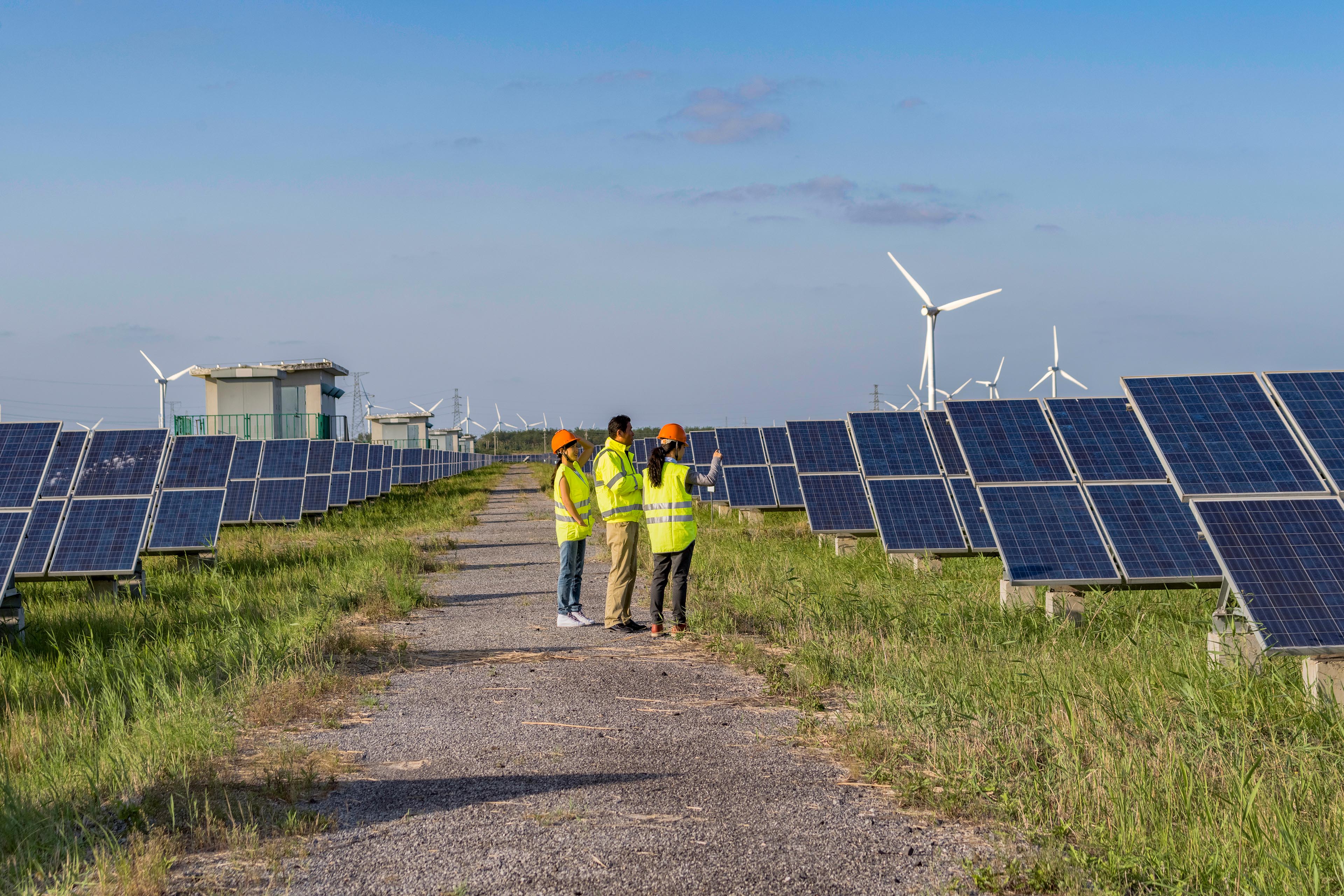EY refers to the global organization, and may refer to one or more, of the member firms of Ernst & Young Global Limited, each of which is a separate legal entity. Ernst & Young Global Limited, a UK company limited by guarantee, does not provide services to clients.

Sustainability strategies set to gain momentum in the MENA region as businesses reassess their priorities
In brief
- There is an opportunity for the MENA region to embrace sustainability as part of a broader effort to build new sectors and engines of growth, including shifting to low-carbon oil and gas, nuclear, solar and hydrogen.
- Sustainability can be an opportunity for MENA companies to build new, better growth paths. It is shaping global access to capital and will increasingly influence companies’ access to foreign markets.
- Companies in MENA can boost their competitiveness by futureproofing against other sustainability challenges, including water scarcity and household waste management.
Countries around the world are increasingly prioritizing sustainability, which in turn is placing businesses under more pressure than ever to put sustainability at the heart of their operations. Ahead of the UN’s COP26 climate meetings in November 2021, CEOs raced to declare their commitments to “net zero” emissions targets. One fifth of the largest 2,000 publicly traded companies — with combined sales of almost US$14t — have now made pledges to reach carbon neutrality by the middle of the century. That includes more than two thirds of businesses selling household and personal products.1
Pressure is coming from above and below. Citizens are demanding more actions from their governments and consumers increasingly demand cleaner records from the companies they buy from. In the past, this ran against the interests of shareholders, but it is changing now as environmental, social and governance (ESG) issues are increasingly on top of mind for investors. Big banks and pension funds are divesting from polluting sectors including oil and thermal coal.2 At COP26, the Glasgow Financial Alliance for Net Zero, representing investors holding about US$130t of assets, pledged to try to cut emissions from their lending to net zero by 2050.3
The MENA region is home to some of the world’s richest fossil fuel reserves, with companies in the region having been strongly linked to hydrocarbons. Yet, there are now growth opportunities in the net zero world, and the region has a chance of a brighter future. Sustainability leads to higher quality growth and new business opportunities, and ESG has been a growing focus for firms which raise capital on global markets. Integrating ESG into business strategy can boost performance and differentiate companies from their competitors.4 Consumer awareness, which has been low compared to other developed regions, is set to rise, rewarding the companies that have well-developed sustainability strategies.
As other parts of the world step up their efforts against climate change, there is an opportunity to put sustainability at the heart of the region’s growth plans too. Even before COVID-19, GCC countries were launching roadmaps to promote private sector development, innovation and structural transformation.5 A flurry of net zero pledges came ahead of COP26 from energy giants and hydrocarbon dependent economies, including Saudi Arabia, the UAE and Bahrain.6 The UAE’s pandemic recovery plan singles out the “green economy” as a driver of future growth. As part of its plans to reach net zero emissions by 2060, Saudi Arabia has pledged to invest more than US$186b in green growth.7 As the region looks to secure future revenue, businesses prioritizing sustainability will gain momentum and MENA’s businesses will have to do more to keep their exports competitive.
Regional sustainability challenges
Futureproofing against major sustainability challenges, from the energy transition to water security and waste management, can be rewarding.
Energy transition
Several MENA countries are pursuing ambitious green energy projects. The UAE recently secured funding for the world’s biggest solar farm,8 while Saudi Arabia hopes to turn itself into the largest supplier of hydrogen, exporting about 4 million tons by 2030.9 GCC countries already have the skills and infrastructure to build a thriving hydrogen sector. The hydrocarbons industry has equipped them with strong capabilities in areas such as logistics and trading, which the hydrogen sector will need.
GCC countries are also ramping up production of natural gas, a transitional fuel, as they look to diversify away from oil. They argue that carbon capture and storage, which aims to sequester planet-warming gases before they are released into the atmosphere, will make them low-carbon producers of LNG. Nuclear energy is also attracting growing investment. During the height of the pandemic last year, the UAE opened the Arab world’s first nuclear power plant; two of whose units are now connected to the grid.10
However, all of this is futile if such products are not properly branded and marketed. Customers of greener energy need to be confident of the underlying emissions for the products they are buying. This will require oil and gas majors, as well as utilities to overhaul their record systems for emissions identification and accounting across the whole value chain. This can act as a strong enabler for the new wave of digital transformation of the energy sector, giving opportunity to harness this new data to optimize operations and get new business insights.
Water security
Fresh water is scarce in the Gulf region yet a liter of mineral water costs less than a liter of petrol in Saudi Arabia. As the MENA’s population grows, demand is soaring. That is a growing focus, especially in energy intensive industries such as agriculture. Some have set goals to reduce water consumption and are investing in more efficient technologies in areas such as irrigation, hydroponics and grey water recycling. At a national level, GCC countries have invested heavily in desalination plants. However, there is room to manage water supplies more sustainably, by developing plants that use less energy and produce less waste.11 Innovations in water-hungry sectors such as power will have to be carefully planned to conserve supplies.
Waste management
There are opportunities to be explored from addressing another of the region’s challenges — household waste. MENA lags more mature economies, such as the EU, when it comes to recycling. The potential to close that gap is huge, as countries make plans to reduce their waste. Improving recycling facilities would help in generating jobs and income, as well as delivering environmental benefits.
The need for action is today
Sustainability is no longer a distant challenge to be managed. It is an urgent mandate which needs to be applied and scaled. Countries have embedded the notion of sustainability in their future visions, which will require new policies and regulations. We have started to see progress in this space, with the KSA’s Ministry of Commerce’s National Standards for Sustainability, and the UAE Securities and Commodities Authority mandating Public Joint Stock Companies publish sustainability reports.
The private sector has a major role to play. Sustainability credentials will shape access to capital and frame business competitiveness in global markets. For companies exporting from MENA, sustainability will become one of the top two or three key differentiators in the coming years. Groups which raise capital on international markets may find that their projects’ success depends on their ESG performance.
Businesses in MENA now have an opportunity to develop more planet-friendly growth models that would benefit their bottom line and society. The need to do so soon will become a competitive advantage.
Related articles
What to watch as global ESG reporting standards take shape
The launch of the International Sustainability Standards Board is a significant development in the transition toward a green economy.
How family enterprises are embracing sustainability
Family enterprises play their role in the global sustainability agenda.
Summary
Sustainability is emerging as a promising growth booster for MENA companies. Businesses have started integrating environmental, social and governance (ESG) criteria into their strategies to better serve customer expectations. Future-proofing against several major sustainability challenges is another idea that the MENA companies are exploring.




